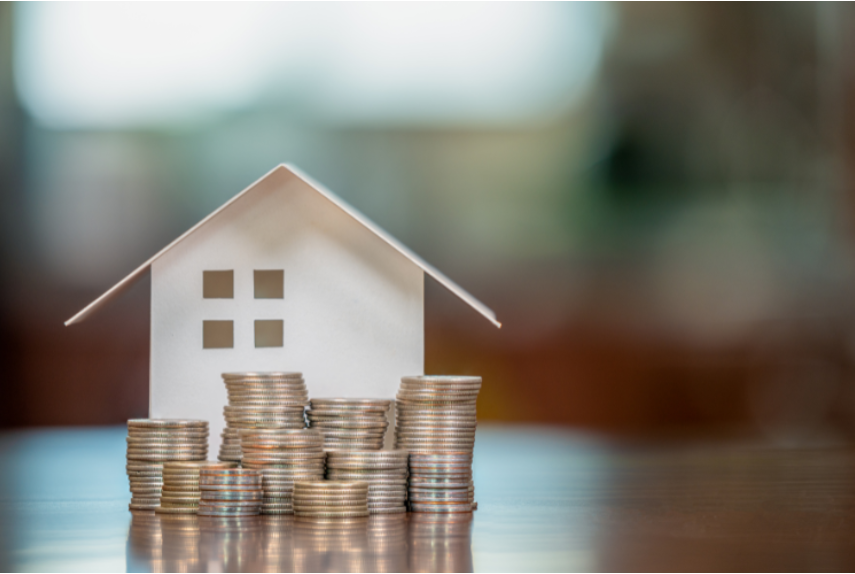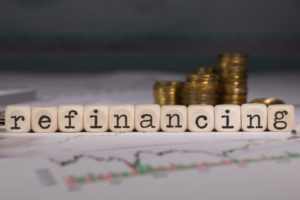
Borrowing Against Your Home Equity
Life has a way of throwing us into unexpected situations, and you can’t just sit back, something has to be done. One of the recurring issues you will sometimes find yourself in is an urgent need for money. Whether you need it for a medical emergency, tuition, or home repairs. You have thought about ways to raise cash, and tapping into the worth of your house by using the equity you’ve accumulated over time could be a good idea. It’s a good idea, no doubt, but you need to understand how it works, and if it’s really worth tapping into it. In this article, we will explain what you need to know before deciding to borrow against your home equity.
What Is Home Equity?
Home equity refers to the value of your home that has grown over time as a result of your mortgage payments. It can rise in two ways at the same time: as you keep paying down the mortgage and as the market value of your home rises.
To figure out how much equity you have in your house, start with the appraised value and deduct any existing secured debts (Mortgage, Home line of credit (HELOC), etc.
Determining the Value of Your Home
Home equity loans in Canada allow you to borrow up to 80% of the market value of your home, after deducting the balance of your mortgage.
Begin by calculating the value of your home. Once you have an accurate figure of your home’s worth, estimate the 80% of that amount. The remaining amount on your mortgage will be subtracted from it (the 80% figure you got), that’s your home equity.
Here is an illustration:
Let’s assume the market worth of your home is $900,000, but you owe $500,000 on your mortgage.
$900,000 x 0.80 = $720,000
$720,000 – $500,000 = $220,000
With this result, the maximum amount you could obtain with a home equity loan is $220,000.
How Does it Work?
The main difference between a home equity loan and any other secured loan is that it leverages your home as collateral. The lender will loan you a specified amount of money based on the worth of your property. Interests will be charged and you will have fixed installment payments to repay your debt. To be considered, you must own a home (which must be rated by a 3rd party). You must have paid off a large portion of your mortgage, and be financially stable enough to take on additional debt.
The Advantage
The amount you receive may be much higher than a personal loan, depending on the level of equity you’re able to tap into. Because your home is the collateral, it’s a reduced risk situation for lenders, which means you may expect cheaper interest rates and a relatively fast application process.
The Disadvantage
Borrowing against your home equity may appear to be a better option than taking on additional debt, but the results are the same. Taking a home equity loan may be dangerous if you’re not in a good financial state to take on additional debt because your house is used as collateral.
Available Options for Borrowing Against Home Equity
Having an understanding of how home equity operates and what your alternatives are is crucial because you’ll need to meet minimal requirements to get a home equity loan. The option below can be used:
Refinancing

Mortgage refinance is the act of gaining a second mortgage for your property, either from your present lender or from a different one. By using the new loan, you typically pay off the original loan in full, allowing you to secure a lower interest and a longer loan term. Keep in mind that if you refinance before your current renewal date, you’ll be charged costs and penalties.
To qualify for refinancing, you must meet certain criteria, including the length of time you’ve owned the home, your credit score, your financial history, the amount of home equity you’ve built up in the home, and your debt-income proportion. While each lender’s minimum equity demand differs, you’ll normally need between 15 to 20 percent equity to refinance.
Applying for a Second Mortgage
This is a loan taken out on top of an existing mortgage on a property. Taking a second mortgage can be risky for lenders because they are in second place on your title. This means that if you fall behind on your pay and the home is repossessed, the lender with the initial mortgage will be paid first. Second mortgage rates are always higher due to the extra risk.
The specific requirements for obtaining a second mortgage will be determined only by your lender. To assess if you’re suitable for a second mortgage, lenders often look at four factors: equity, income, credit score, and property.
Reverse Mortgage
This is a loan secured against the value of a property that provides you with tax-free cash without compulsory monthly payments. This is for homeowners aged 55 and above. It allows you to convert up to 55 percent of the equity in your house into tax-free cash that can be used to pay for education, travel, home upgrades, debt, or anything else you want. If you qualify, the amount you’ll be approved for is determined by you and your spouse’s age, the region of your property, the kind of home it is, the appraised worth, the condition of your home, and the amount of your home equity.
Home Equity Line of Credit (HELOC)

This is a credit line that allows you to borrow against your home equity at a cheaper rate of interest than a regular credit line. You’ll pay interest with a HELOC, but you can borrow and repay as often as you need money, up to a set credit limit. Your home serves as a guarantee to the lender that you will repay the money you borrow. To be eligible, you should have a minimum of 20% equity in your home.
Conclusion
Whether you want to borrow against your home equity or simply want to know about the process, keep an eye on your credit score, develop a realistic budget, and be aware of all the charges and procedures that come with it.
Always get expert advice before making any major mortgage decisions, as there are numerous factors to consider before making a decision, and an expert can assist you in choosing the best option possible. Do you want to learn more? Get in contact with our staff to learn more about borrowing against your home equity. Debt free feels good!





